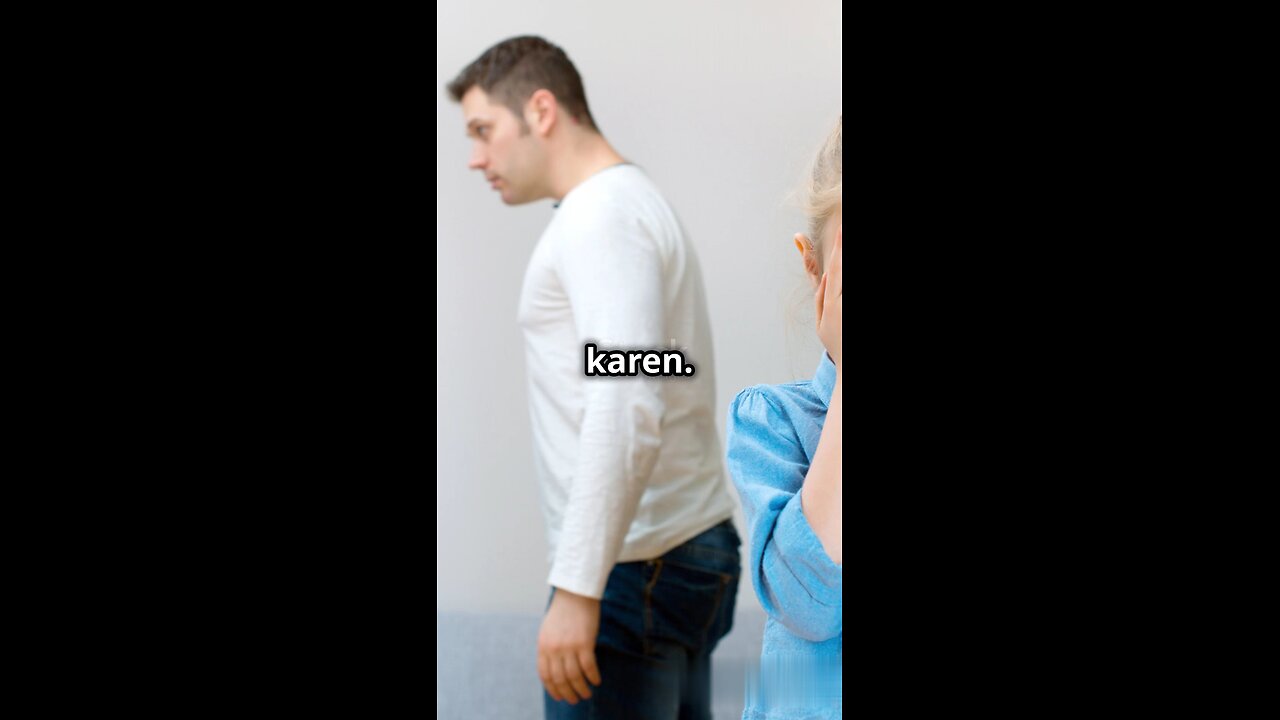Premium Only Content

How Unresolved Relationship Conflicts Affect Children and How to Resolve Them
How Unresolved Relationship Conflicts Affect Children and How to Resolve Them
Family dynamics play a crucial role in shaping a child’s future, emotional well-being, and overall development. While adult relationships can be complex and sometimes challenging, it is important to recognize how unresolved relationship conflicts can affect the children within the household. Children are incredibly perceptive and can sense tension even if not directly involved. The way parents and caregivers resolve (or fail to resolve) conflicts sets the foundation for how children approach their future relationships. In this article, we will explore the negative impact unresolved conflicts can have on children, and how healthy relationship management can foster emotional and psychological well-being.
How Unresolved Conflicts Affect Children’s Well-being
1. Emotional Distress and Anxiety: Children are highly sensitive to their emotional environment. When there is tension, frequent fighting, or unresolved issues between parents or guardians, children may experience heightened anxiety and emotional distress. The uncertainty and instability created by ongoing disputes can cause the child to feel nervous, worried, or emotionally exhausted.
2. Behavioral Issues: Children learn from what they see. When children are exposed to unhealthy communication patterns, such as shouting, criticism, or hostility, they may begin to mimic these behaviors. Over time, these negative patterns can manifest in the child’s own relationships, leading to difficulties in school, with friends, and in their future partnerships. They may find it challenging to form healthy, trusting relationships.
3. Impaired Mental Health: Unresolved issues and toxic home environments contribute to the emotional instability of a child. Anxiety, depression, and issues with low self-esteem often arise in children who are exposed to strained relationships in the home. This is because children feel unsafe in an environment filled with tension and unresolved conflict, which often leads to mental health struggles.
4. Impact on Academic Performance: A child’s focus, productivity, and academic success are often linked to the environment they grow up in. Tension in the home can distract children and reduce their ability to concentrate in school. Furthermore, stress from ongoing relational conflicts can make the child feel overwhelmed or disconnected from the world of education.
5. Difficulty with Emotional Regulation: When a child witnesses unresolved conflicts, they may find it difficult to regulate their own emotions. Their ability to manage frustration, disappointment, and anger is compromised when they have not been shown healthy conflict resolution. Over time, this leads to challenges in managing personal relationships, resulting in difficulties understanding the importance of compromise and understanding.
The Importance of Resolving Relationship Conflicts
The primary responsibility of every parent and caregiver is to create a loving and stable environment for the child. When conflicts arise between the adults in the family, it is essential to deal with them quickly, calmly, and constructively. Unresolved conflicts can damage more than just the relationship between adults; it can negatively impact the child’s future relationships and overall well-being. Healthy family dynamics are key to emotional stability, and focusing on conflict resolution can foster an emotionally secure atmosphere for a child to thrive.
How to Resolve Conflicts and Protect Your Child’s Well-being
1. Open Communication and Active Listening: Effective communication is the foundation of a strong relationship. Couples and family members need to communicate openly and listen actively, without judgment. Encouraging honest and respectful dialogue allows both parties to feel understood and fosters mutual empathy. This builds trust and reduces misunderstandings that lead to conflict.
2. Seek Professional Help (Therapy or Counseling): In cases of deep or long-term relational challenges, seeking therapy or counseling can be incredibly beneficial. A professional can mediate between partners, provide conflict resolution tools, and offer strategies to help both adults communicate more effectively. Therapy also helps create a platform where children can be heard if they are affected by the tension.
3. Maintain Emotional Control: It is essential to address disagreements calmly and maintain emotional control during conflicts. This not only helps avoid escalation but also sets a good example for children on how to manage emotional challenges constructively. Always strive to respond with empathy and avoid shouting or blaming.
4. Provide Assurance to Children: Children need reassurance that they are safe and loved, no matter what is happening between the adults in their life. If there is tension, it’s essential to communicate that the conflicts do not have anything to do with them, and they are still loved unconditionally. Keeping children informed without burdening them is key to protecting their emotional stability.
5. Positive Parenting: As parents or guardians, it’s critical to model positive relationship skills for children. The way adults manage disagreements, forgive each other, and repair relationships teaches children how to build and maintain their own friendships and partnerships. Positive parenting also means offering consistent love, affection, and validation, even when conflicts arise between adults.
6. Focus on the Child’s Needs: During times of conflict, adults must keep the child's emotional needs at the forefront. This might mean allocating more one-on-one time, showing extra patience, and being mindful of their emotional reactions. Children can feel neglected or lost when conflicts between their parents dominate the household.
Conclusion: Building a Healthy Family Environment
Healthy relationships are the foundation of a thriving family and nurturing environment. When conflicts occur, resolving them promptly and respectfully is critical. This not only maintains emotional health but also protects children from the detrimental effects of unresolved issues. Healthy relationships in the household are essential for raising confident, resilient, and emotionally balanced children. By making it a priority to address relational conflicts with understanding, compassion, and maturity, you are not only securing your own emotional well-being but also that of your child’s future.
SEO Keywords:
Healthy relationships and children
Impact of family conflict on kids
Importance of open communication
Emotional well-being of children
Conflict resolution in relationships
Parental conflict resolution
Children’s behavior and family dynamics
Role of communication in parenting
Therapy for relationship issues
Family stability and child development
Relationship management in families
Coping with emotional stress in children
Child behavior and emotional regulation
Positive parenting strategies
Safe environment for children
Hashtags:
#familyrelationships #relationshipconflict #parenting #familydynamics #childrenswellbeing #emotionalhealth #mentalhealthofchildren #familycounseling #conflictresolution #healthyparenting #positiveparenting #parentinggoals #childpsychology #relationshipadvice #raisingchildren
-
 1:00:48
1:00:48
The StoneZONE with Roger Stone
9 hours agoJustin Trudeau Throws In The Towel! w/ Canadian Hockey Legend Theo Fluery | The StoneZONE
83.2K24 -
 1:18:37
1:18:37
We Like Shooting
19 hours ago $2.56 earnedDouble Tap 391(Gun Podcast)
50.3K1 -
 2:32:43
2:32:43
FreshandFit
19 hours agoAndrew Wilson VS Gary The Numbers Guy Astrology & Numerology Debate!
130K77 -
 9:22:40
9:22:40
Dr Disrespect
17 hours ago🔴LIVE - DR DISRESPECT - TRIPLE THREAT CHALLENGE - RIVALS, PUBG, WARZONE
230K44 -
 1:15:03
1:15:03
Dad Dojo Podcast
15 hours ago $1.65 earnedEP16: Parenting: Then vs Now
43.5K -
 53:58
53:58
Sarah Westall
10 hours agoBlack Pilled vs Learning Reality and Maintaining Perspective, AI Reality w/ Johnny Vedmore
66.1K4 -
 55:01
55:01
LFA TV
1 day agoJan. 6, 2021, vs. Jan. 6, 2025 | TRUMPET DAILY 1.6.25 7pm
43.6K2 -
 1:19:27
1:19:27
The Big Mig™
1 day agoLimitless Health with Calley Means
56.6K8 -
 1:37:26
1:37:26
Redacted News
14 hours agoBREAKING! Trump Effect is Real Justin Trudeau Resigns in Disgrace
172K263 -
 49:08
49:08
Kimberly Guilfoyle
14 hours agoEnding Injustice and the 100 Day Agenda, Live with Joseph McBride and Mark Lucas | Ep. 186
52.4K8